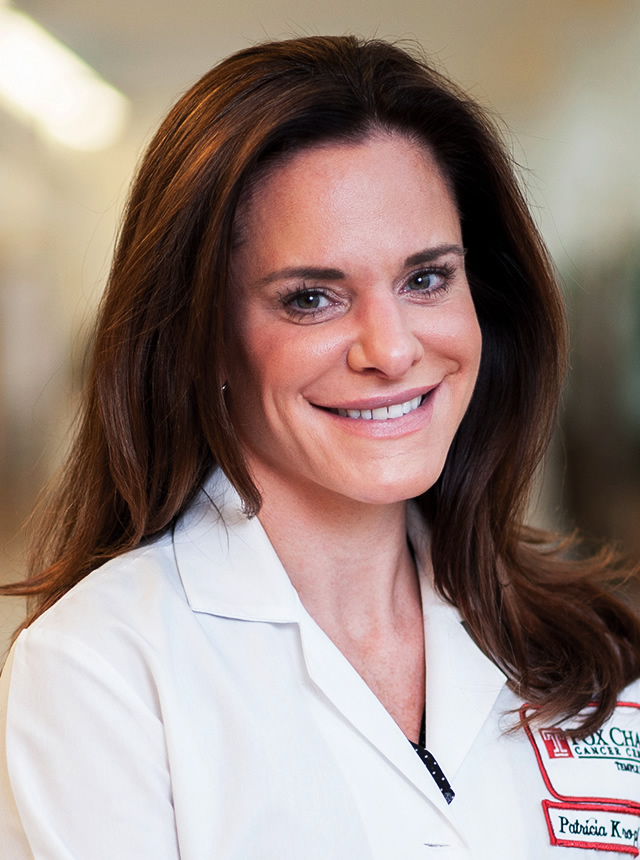PHILADELPHIA (December 7, 2015) – The combination of an epigenetic agent with arsenic trioxide may be a potential treatment for patients diagnosed with advanced myelodysplastic syndrome (MDS) or acute myeloid leukemia (AML) who cannot undergo intense chemotherapy. Fox Chase Cancer Center – Temple Health researchers presented the results of a phase 2 trial at the 2015 American Society of Hematology Annual Meeting in December.

Patricia Kropf, MD, Assistant Professor and the Assistant Director of The Fox Chase Cancer Center – Temple University Hospital Bone Marrow Transplant (BMT) Program, said that she and her colleagues have been working to develop therapies for elderly patients with AML and for those patients who cannot tolerate aggressive chemotherapy.
In preclinical studies, the researchers identified potent epigenetic effects of arsenic trioxide alone and in in combination with decitabine.
“Our results are exciting; however, additional studies are needed, “ Kropf said. “To this end, we will be opening a larger study in 2016 to assess the efficacy of arsenic in combination with a hypomethylating agent for patients with MDS and AML.”
These preclinical data prompted the researchers to initiate a randomized phase 2 clinical trial comparing the safety and efficacy of decitabine in combination with arenic as compared to decitabine alone in patients with AML or MDS.
Decitabine is an FDA approved hypomethylating agent for the treatment of MDS and is also has clinical activity in AML. Despite efficacy of decitabine, though, the treatment response is limited and the prognosis is poor once the disease has progressed.
Forty-two patients were enrolled on the trial by August 2015, and the response to therapy was evaluated in 38 patients. Twenty-two patients had AML and 20 had been diagnosed with MDS. A statistically higher response rate was found in the group treated with the combination of decitabine and arsenic trioxide, as compared to decitabine alone. Researchers found, most importantly, that the combination was well tolerated, and did not appear to have increased side effects as compared to single agent decitabine.
Other Fox Chase researchers involved in this research are Jean-Pierre Issa, MD, Henry Fung, MD, and Philip Pancari, MD. Issa conducted the early research that led to an understanding of the role of epigenetics in the pathophysiology and treatment of cancer. He is the director of the Fels Institute for Cancer Research and Molecular Biology at Temple University.